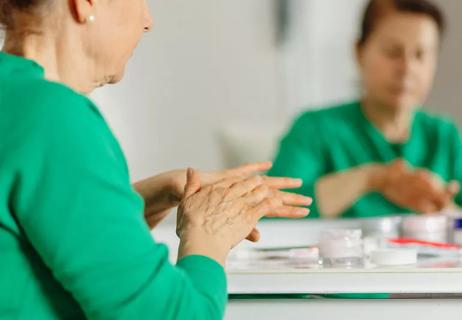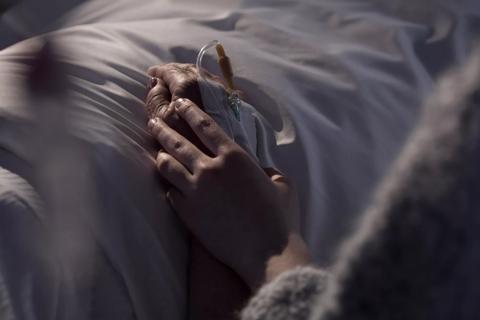Before you start planning, ask yourself these questions

You’re in the middle of treatment for cancer — one of the most serious, scary and intense experiences ever. Does the idea of going on a vacation trip seem somewhat frivolous?
Advertisement
Cleveland Clinic is a non-profit academic medical center. Advertising on our site helps support our mission. We do not endorse non-Cleveland Clinic products or services. Policy
If you’re a cancer patient, taking a vacation might be exactly what you need. So much of your daily life and mental energy can revolve around treatment and visits to the doctor. A vacation trip can provide a respite from all of that.
Planning a vacation can also give you something to look forward to and can transport your mind to pleasant thoughts. Daydreaming about warm beach breezes, beautiful gardens, paintings or sculpture, can stimulate your senses and help get your mind off of worrying about treatment.
Before you get started, though, you may want to ask yourself – and your doctor or nurse – a few questions. Cancer care specialist Josette Snyder, RN, MSN, AOCN, offers advice.
“The answer to this question depends on where you are on your cancer journey,” Snyder says. If you are just starting treatment, for example, or are undergoing chemotherapy, your doctor may say it’s important to maintain your treatment schedule. Check with your doctor or nurse and ask if this is a good time to get away.
If the time for a vacation is right, ask your doctor or nurse if they have advice about health precautions that you may need to take while traveling.
For example, if you’re just finished chemotherapy, you might be more susceptible to infections. And with coronavirus on the rise, you might want to postpone travel plans during this time. Or if you’ve had surgery recently, your doctor might advise you to avoid or postpone air travel, as it can increase the risk of developing blood clots.
Advertisement
Snyder says the answer to this will differ depending on your diagnosis and treatment. She offers some general advice
Some people may wish for just a brief break – and there are advantages to a short trip. A quick getaway won’t tax you physically. Also you may want to avoid the expense, stress and detailed preparation of a big trip.
Consider taking a “staycation” in your home town. Check out the local sights for which you’ve never really made time. You’ll be in familiar surroundings, but can make the day special by visiting an intriguing restaurant or being pampered with an overnight stay at a luxurious hotel. A short vacation also could take the form of a long weekend to a place not far from home.
If you’re at the end of treatment, you may want to celebrate with a special long trip. Go with a supportive person – someone who can laugh with you and understand your situation.
Snyder recommends thinking carefully – and talking with your doctor or nurse – about whether you are up for the vacation and, if so, what kind of trip would be compatible with where you are physically.
For example, a beach trip that features lots of relaxation time might be easier and more beneficial than a trip to a big city where you’ll be doing lots of walking.
It’s OK to get away and do something fun even while you’re in the very serious process of cancer treatment. “People who are undergoing cancer treatment need vacations just as do people who are not,” says Snyder. The memories you create during a trip with a supportive partner can help to sustain you during the stressful parts of treatment and beyond.
Advertisement
Advertisement
Learn more about our editorial process.
Advertisement

Chemo cold caps may help you keep more of your hair during therapy

Practice meditation together, make a unique-to-them care package and embrace emotions

From a thoughtful note to a special pillow, these items are a win

How to create your own organizational system

Take these steps to limit the damage

The short answer from an exercise physiologist

The short answer from an oncologist

10 things that can help ease your mind and keep you comfortable

Wearing a scarf, adjusting your outdoor activities and following your asthma treatment plan can help limit breathing problems

Your diet in the weeks, days and hours ahead of your race can power you to the finish line

When someone guilt trips you, they’re using emotionally manipulative behavior to try to get you to act a certain way